Looking for a list of 47 tribes of Kenya and how they call their God ? Well, The 47 tribes of Kenya each have unique names for their god, reflecting the diverse spiritual beliefs and cultural heritage of the nation.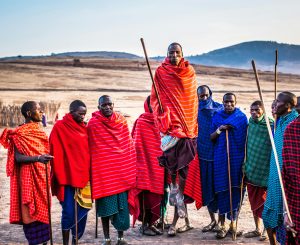
Kenya, a land of diverse landscapes and rich cultural heritage, is home to a multitude of ethnic groups, each with its own unique traditions, languages, and spiritual beliefs.
The following is a comprehensive list of the 47 tribes of Kenya and the names they use for their god or gods, showcasing the profound cultural and religious tapestry of this East African nation.
47 Tribes of Kenya and How They Call Their God
1. Kikuyu – Ngai
Yet to figure out how do Kikuyu call their god? The Kikuyu people call their God “Ngai”.
Ngai is considered the supreme being, the creator of the universe, and the provider of life. The Kikuyu believe that Ngai is a powerful and benevolent deity who watches over them and guides their lives
The Kikuyu, the largest ethnic group in Kenya, refer to their god as Ngai. Ngai is believed to reside on Mount Kenya, and he is the creator and provider, deeply embedded in the Kikuyu spiritual and cultural practices.
Here’s some additional information you might find interesting:
- The Kikuyu people traditionally call their God Ngai.
- This word Ngai is believed to be borrowed from the Maasai word Enkai.
- Ngai is seen as the creator and provider and is associated with Mount Kenya.
2. Luo – Nyasaye
how do Luo call their god? The Luo people call their God “Nyasaye”.
Nyasaye is the supreme being in Luo mythology, believed to be the creator of the universe and the source of all life. Like many African religions, the Luo believe in a pantheon of deities and spirits, but Nyasaye is considered the most powerful and revered among them
For the Luo people, Nyasaye is the supreme deity. Nyasaye is considered the omnipotent and omnipresent god, who governs the universe and is invoked in various rituals and ceremonies.
The Luo people traditionally call their God Nyasaye (also spelled Nyasae or Nasaye). This name refers to the creator deity in their traditional beliefs.
Here’s some additional information you might find interesting:
- Luo people also use other titles to describe Nyasaye, including Obong’o Nyakalaga. Obong’o means “one” or “unique” and Nyakalaga means “the everlasting one” or “a force that creeps everywhere.”
- It’s important to note that the concept of Nyasaye may differ slightly from the Abrahamic God.
3. Luhya – Were
how do Luhya call their god
Among the Luhya, one of the largest tribes in Kenya, Were is the name of their god. It’s important to note that some sub-tribes of the Luhya may have different names for their deity, reflecting the diversity within the community.
4. Kalenjin – Asis
how do Kalenjin call their god
The Kalenjin people worship Asis, the sun god. Asis is revered as the source of life and sustenance, and many Kalenjin rituals and traditions are centered around the worship of this deity.
5. Kamba – Ngai
how do Kamba call their god
i
Similar to the Kikuyu, the Kamba people also refer to their god as Ngai. Ngai is seen as the supreme creator and is worshipped through various rituals and ceremonies.
5. Somali – Allah
How do Somali call their god ?
The Somali people, predominantly Muslim, worship Allah. Islam plays a significant role in their daily lives, and Allah is the central figure in their religious practices.
6. Kisii – Engoro
How do Kisii call their god ?
For the Kisii people, Engoro is the name of their god. Engoro is considered the creator and sustainer of life, deeply respected and worshipped through traditional practices.
7. Mijikenda – Mwatu
How do mijikenda call their god ? Well, The Mijikenda people do not have a single, unified name for their God BUT Mwatu is their most powerful God. Their belief system involves a pantheon of deities and spirits, each with their own domain and responsibilities.
While there is no single supreme being, the most powerful and revered among them is often considered to be Mwatu.
Mwatu is associated with the sky, thunder, and rain. She is believed to be the ultimate source of life and fertility. However, it’s important to note that the Mijikenda belief system is complex and varies among different clans and regions. Each clan may have its own specific deities and rituals.
Meru – Murungu
The Meru people call their god Murungu. Murungu is revered as the supreme deity, responsible for creation and the well-being of the people.
Maasai – Enkai/Engai
The Maasai, known for their rich cultural heritage, worship Enkai or Engai. Enkai is a dual-natured god, associated with both benevolence and wrath, reflecting the duality of nature.
Turkana – Akuj
Among the Turkana people, Akuj is the name of their god. Akuj is seen as the creator and protector, invoked in various rites and ceremonies for guidance and blessings.
Taita – Mulungu
The Taita people refer to their god as Mulungu, similar to other tribes in the region. Mulungu is worshipped as the creator and sustainer of life.
Embu – Ngai
For the Embu people, Ngai is the supreme deity. Ngai is believed to reside on Mount Kenya and is worshipped through various traditional practices.
Samburu – Nkai
The Samburu, closely related to the Maasai, worship Nkai. Nkai is considered the provider and protector, central to the spiritual life of the Samburu people.
Pokot – Tororot
The Pokot people refer to their god as Tororot. Tororot is revered as the supreme deity, involved in the creation and maintenance of life.
Teso – Edeke
Among the Teso people, Edeke is the name of their god. Edeke is seen as the creator and sustainer, worshipped through traditional ceremonies and rituals.
Kuria – Engoro
The Kuria people also refer to their god as Engoro, similar to the Kisii. Engoro is central to their spiritual beliefs and practices.
Orma – Waq
For the Orma people, Waq is the supreme deity. Waq is worshipped as the creator and sustainer of life.
Gabbra – Waaq
The Gabbra people call their god Waaq. Waaq is revered as the creator and protector, central to their spiritual and cultural practices.
Rendille – Wak
Among the Rendille people, Wak is the name of their god. Wak is seen as the provider and sustainer, deeply respected and worshipped.
Borana – Waaq
The Borana people also worship Waaq. Waaq is the supreme deity, involved in the creation and maintenance of life.
Chonyi, Kauma, Jibana, Giriama, Duruma, Digo – Mulungu
The Chonyi, Kauma, Jibana, Giriama, Duruma, and Digo, all part of the Mijikenda group, refer to their god as Mulungu. Mulungu is the creator and sustainer, worshipped through various traditional practices.
Sakuye – Waaq
The Sakuye people also worship Waaq, similar to the Borana and Gabbra. Waaq is central to their spiritual beliefs and practices.
Boni (Aweer) – Ibe
The Boni, also known as Aweer, refer to their god as Ibe. Ibe is seen as the creator and protector, invoked in various traditional ceremonies.
Nubians – Allah
The Nubian people, predominantly Muslim, worship Allah. Islam is integral to their culture, and Allah is the central figure in their religious life.
Suba – Nyasaye
The Suba people, closely related to the Luo, refer to their god as Nyasaye. Nyasaye is the supreme deity, worshipped through traditional practices.
Swahili – Allah
The Swahili people, predominantly Muslim, also worship Allah. Islam is central to their culture and daily life, with Allah being the supreme deity.
Bajuni – Allah
The Bajuni people, part of the Swahili coastal community, worship Allah. Islam is deeply embedded in their culture, with Allah at the center of their spiritual life.
El Molo – Waaq
The El Molo people call their god Waaq. Waaq is revered as the creator and sustainer, worshipped through traditional practices.
Mbeere – Ngai
The Mbeere people, related to the Kikuyu and Embu, refer to their god as Ngai. Ngai is seen as the supreme creator and is central to their spiritual beliefs.
Njemps (Ilchamus) – Enkai
The Njemps, also known as Ilchamus, worship Enkai, similar to the Maasai. Enkai is the provider and protector, central to their spiritual practices.
Boran – Waaq
The Boran people also worship Waaq, similar to other Cushitic-speaking tribes. Waaq is the creator and sustainer of life.
Dasenach – Eebe
For the Dasenach people, Eebe is the name of their god. Eebe is worshipped as the supreme deity, central to their spiritual and cultural practices.
Marakwet – Asis
The Marakwet people, part of the Kalenjin group, refer to their god as Asis. Asis is the sun god, revered as the source of life and sustenance.
Pokomo – Mulungu
The Pokomo people also refer to their god as Mulungu, similar to other tribes in the region. Mulungu is the creator and sustainer, worshipped through traditional practices.
Taveta – Mulungu
The Taveta people call their god Mulungu. Mulungu is central to their spiritual beliefs and practices, revered as the creator and sustainer.
45. Yaaku – Nkai
The Yaaku people, a small indigenous group, worship Nkai, similar to the Maasai. Nkai is the provider and protector, central to their spiritual life.
46. Waata – Ibe
The Waata people refer to their god as Ibe, similar to the Boni. Ibe is seen as the creator and protector, worshipped through traditional ceremonies.
47. Ogiek – Asis
The Ogiek people, a hunter-gatherer community, worship Asis. Asis is revered as the sun god, central to their spiritual and cultural practices.
47 Tribes of Kenya and How They Call Their God FAQs
1. What are the 47 tribes of Kenya? The 47 tribes of Kenya encompass various ethnic groups spread across the country, each with its own unique cultural practices, languages, and beliefs.
2. How do different Kenyan tribes refer to their God? Kenyan tribes have diverse names and beliefs regarding the divine. The names used for God reflect cultural and linguistic diversity across the country.
3. Is there a common deity among all Kenyan tribes? No, there is no single deity worshipped universally across all Kenyan tribes. Each tribe has its own spiritual beliefs and names for their supreme being or deities.
4. What are some common spiritual practices among the Kenyan tribes? Spiritual practices vary widely among the tribes but may include prayer, rituals, sacrifices, and ceremonies to honor their gods or ancestors.
5. Are there similarities in the religious beliefs of Kenyan tribes? While there are variations, some tribes may share similarities in their cosmology, creation myths, and spiritual practices due to cultural interactions and historical influences.
6. How have traditional beliefs among Kenyan tribes adapted over time? Traditional beliefs among Kenyan tribes have adapted alongside modern influences, with some incorporating aspects of Christianity, Islam, or other religions.
7. Do all Kenyan tribes have specific rituals or ceremonies related to their spiritual beliefs? Yes, most Kenyan tribes have rituals and ceremonies that play a significant role in their spiritual and cultural practices, often involving music, dance, and communal gatherings.
8. Are there taboos or restrictions related to spiritual practices among Kenyan tribes? Yes, many tribes have taboos or restrictions related to spiritual practices, such as prohibitions on certain foods, behaviors, or interactions during sacred ceremonies.
9. How do Kenyan tribes pass down their spiritual beliefs and practices to younger generations? Spiritual beliefs and practices are typically passed down orally through storytelling, ceremonies, and initiation rites within families and communities.
10. How can outsiders respectfully engage with the spiritual traditions of Kenyan tribes? Outsiders can engage respectfully by learning about the specific customs and beliefs of each tribe, seeking permission before participating in ceremonies, and showing appreciation for cultural diversity and heritage.
Final Thoughts
In conclusion, exploring the diverse ways in which Kenya’s 47 tribes perceive and call upon their gods offers a profound glimpse into the richness of African spirituality and cultural heritage.
Kenya’s rich cultural diversity is reflected in the myriad names and concepts of god among its tribes.
These spiritual beliefs and practices are integral to the identity and heritage of each community, illustrating the profound connection between culture, spirituality, and the natural world.
Each tribe’s beliefs and practices are not only a testament to their unique identities but also a reminder of the interconnectedness of humanity through varied expressions of faith and reverence.
As we continue to appreciate and respect these traditions of the 47 Tribes Of Kenya And How They Call Their God, let us embrace the opportunity to learn from them, fostering mutual understanding and unity amidst our differences.
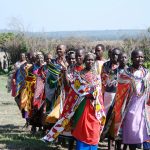
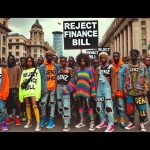
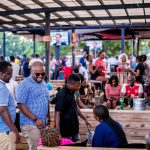
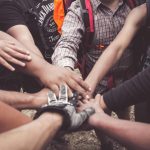
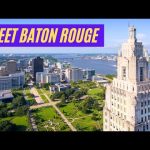
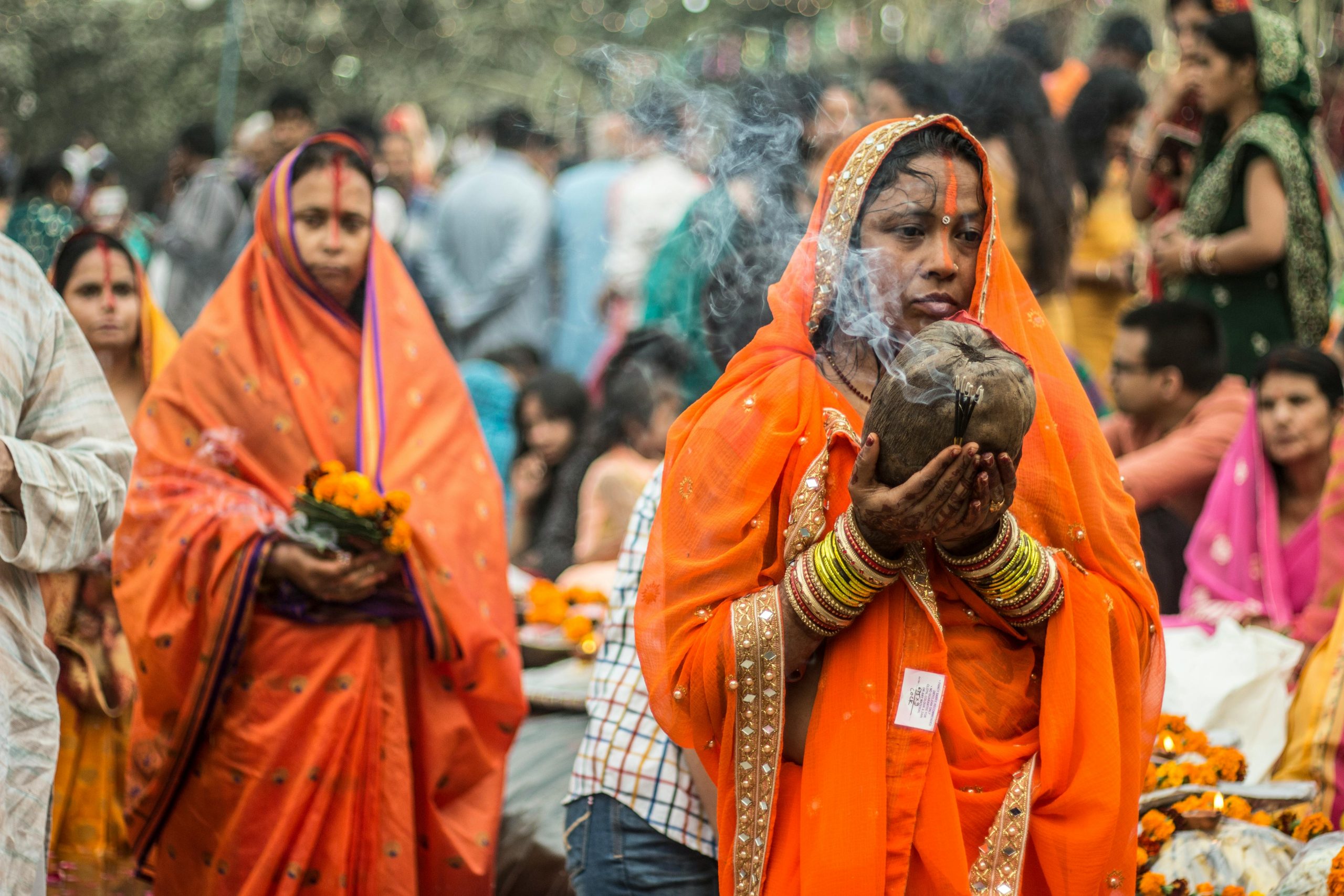
One thought on “47 Tribes Of Kenya And How They Call Their God”